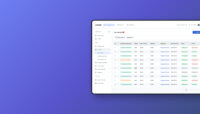In today’s fast-paced digital world, website speed has become a crucial factor that can make or break the success of a business online. Whether you’re running an e-commerce store, a blog, or a corporate website, speed plays a significant role in how users perceive your brand and engage with your content. Here’s why website speed matters for your business:
1. First Impressions Count
Your website’s loading time is often the first interaction users have with your brand. If your site takes too long to load, visitors may quickly lose interest and leave before exploring your content. A slow website can give the impression that your business is outdated or unreliable, leading to a negative first impression.
2. User Experience (UX)
Good user experience is all about providing visitors with quick, easy, and efficient access to what they’re looking for. A fast website keeps users engaged and encourages them to explore further, while a slow-loading site frustrates them, increasing the likelihood of them abandoning your site altogether. A positive user experience results in higher satisfaction and better conversions.
3. SEO and Search Rankings
Website speed is an important factor for search engine optimization (SEO). Google and other search engines prioritize fast-loading websites in search results. A slow site can hurt your SEO rankings, making it harder for potential customers to find your business. Improving your website’s speed can give you an SEO boost, helping your site rank higher and attract more traffic.
4. Mobile Performance
With mobile devices accounting for the majority of online traffic, it’s essential that your website performs well on smartphones and tablets. Mobile users expect websites to load quickly, and if your site is slow on mobile, you risk losing a large portion of your audience. Optimizing your website speed ensures that mobile users have a smooth experience.
5. Higher Conversion Rates
There’s a direct correlation between website speed and conversion rates. Studies show that even a one-second delay in page load time can result in a significant drop in conversions. Whether you’re selling products, gathering leads, or promoting services, a faster website leads to more sales and customer engagement.
6. Reduced Bounce Rates
Bounce rate refers to the percentage of visitors who leave your site after viewing just one page. Slow websites tend to have higher bounce rates, as users don’t want to wait around for pages to load. By speeding up your site, you can reduce bounce rates and keep visitors on your site longer.
7. Business Reputation
Your website reflects the quality of your business. A fast, well-optimized site gives users confidence in your brand’s professionalism, while a slow website can damage your credibility. Customers expect a smooth online experience, and failing to meet that expectation can negatively impact your business reputation.
Conclusion
In today’s competitive digital landscape, website speed is more important than ever. It affects everything from user experience to SEO, conversion rates, and overall business success. Investing in optimizing your website’s speed can lead to improved customer satisfaction, higher search rankings, and better business results.






